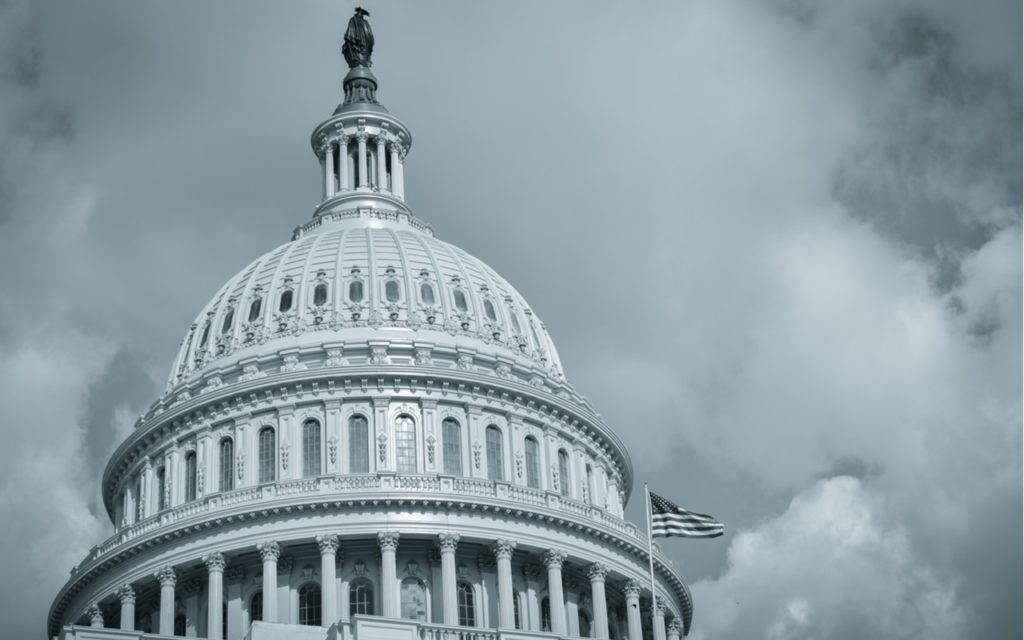
With a checkered history of brokering bipartisan megadeals which historically fall apart at the last minute, the U.S. Senate has managed to buck the trend and pass the $1.2 trillion Infrastructure Investment and Jobs Act with bipartisan support.
The 69-30 vote saw 19 Republicans, including Leader Mitch McConnell, R-Ky., join all 50 senators in the Democratic caucus to approve the legislation, which provides a historic investment in the modernization of the nation’s most critical infrastructure.
The bipartisan package, which passed on Aug. 10, includes $110 billion for roads, bridges and major projects; $66 billion for passenger and freight rail; $65 billion for broadband infrastructure; $55 billion for water infrastructure; $39 billion for transit; $25 billion for airport improvements; and $16.6 billion for ports and waterways. It also provides a 34% increase in federal funding for the nation’s transportation infrastructure, includes hard-fought provisions to expedite the federal permitting process for construction projects and supports workforce development opportunities for hardworking Americans, in addition to investments in new technology to bring the design, management and building of construction projects into the 21st century.
This long-awaited bill’s journey through the narrowly divided and historically partisan Senate seemed more than unlikely earlier in the year. After Democrats passed the $1.9 trillion American Rescue Plan via the budget reconciliation process, it seemed that Republicans would find it hard to stomach the price tag of another trillion-dollar government spending bill, despite a broad consensus on the need for critical investments in the nation’s infrastructure.
The Biden administration further spiked the punch with dual proposals—the American Jobs Plan and the American Families Plan, totaling roughly $4 trillion in new federal spending.
Faced with Congressional realties and the insistence of key senators in the president’s own party (Joe Manchin, D-W.Va., and Kyrsten Sinema, D-Ariz.), the White House was forced to attempt negotiations with Republicans to formulate a bipartisan infrastructure deal. These negotiations led to proposals and counterproposals over the course of the spring, with Sen. Shelley Moore Capito, R-W.Va., leading the GOP in negotiations that eventually fell apart in early June.
While the collapse of these initial negotiations left the hope for a bipartisan breakthrough dwindling, Sen. Sinema teamed up with retiring Republican Sen. Rob Portman of Ohio for additional weeks of discussions that led to the endorsement of a bipartisan infrastructure framework from more than 20 U.S. senators and the president in July. The fruit of this bipartisan cooperation was the recently passed Infrastructure Investment and Jobs Act, a bill that ultimately did not contain the policies objected to by Republicans, such as government-mandated project labor agreements, stringent apprenticeship requirements, costly tax hikes and support for the radical Protecting the Right to Organize Act.
While it is important to recognize the bipartisan accomplishments of the bill and the benefits of Congress choosing compromise over conflict, there remain concerns over some of the bill’s provisions that expand costly labor requirements and include misguided “buy American” and “local hire” conditions. Additionally, the broad authority of federal agencies in overseeing the implementation of the bill, should it be signed into law, and actions the administration has signaled it could take to limit participation from merit shop contractors, could limit the impact and benefits of this bill in states and local communities. Prior to the passage of the bill, Associated Builders and Contractors published an assessment of priorities and wins included in the bill, as well as concerns with several labor provisions.
After passage in the Senate, the bill now rests in legislative limbo, as House Speaker Nancy Pelosi, D-Calif., attempts to pair the consideration of the act with the budget reconciliation package under debate as of Aug. 10.
As detailed by Senate Budget Committee Chair Bernie Sanders, D-Vt., the yet-to-be-written package will seek to enact several of the policy priorities laid out in President Biden’s American Families Plan. The approximately $3.5 trillion measure could impose $1.75 trillion or more in tax hikes on America’s workers and business.
Further, Democrats are considering inserting new requirements that would make it harder for workers to qualify as independent contractors and may provide tax deductions for union dues, as well as additional financial support for striking workers. There is also a possibility that the PRO Act will be reintroduced via this measure. Though all provisions would have to eventually survive the scrutiny of budget reconciliation’s Byrd Rule, only a simple majority will be needed to pass the package.
It is yet to be seen if either the infrastructure bill or the budget reconciliation package will eventually be enacted; however, Speaker Pelosi and House Majority Leader Steny Hoyer, D-Md., have informed House members that they will be returning from their August recess earlier than scheduled to start work on their portion of the $3.5 trillion budget resolution. The House will not only be considering the infrastructure bill and the budget, but several other competing priorities as well.
Confronting the expiration of enhanced federal unemployment benefits, the Sept. 30 lapse in government funding and the always-controversial raising of the debt ceiling, Congress is certain to face an imposing legislative logjam this fall.
For the construction industry, this hard-fought bipartisan accomplishment will likely be hindered if Congress pairs it with the tax hikes and spending measures proposed in the budget resolution on the table. However, if passage of the bill is made a priority over partisan concerns, this long-awaited measure can finally come to fruition.
origination: https://www.constructionexec.com/article/trillion-dollar-bipartisan-infrastructure-bill-beats-the-odds-in-the-senate




Recent Comments